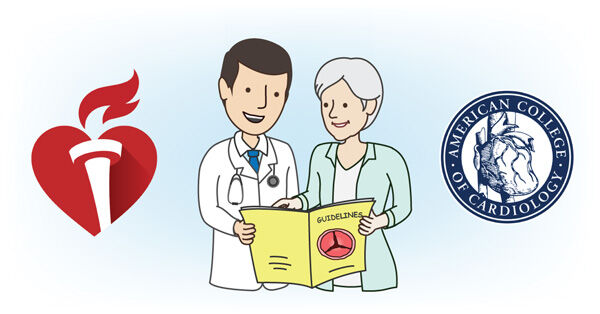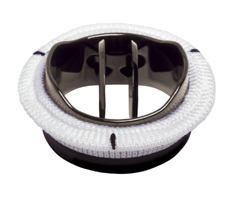Mechanical Heart Valve Replacements: 13 Important Facts
Written By: Adam Pick, Patient Advocate & Author
Medical Expert: Aqeel Sandhu, MD, Surgical Director, Bluhm Cardiovascular Institute, Northwestern Medicine (Northwest Region)
Page last updated: June 26, 2021
When patients with severe heart valve disease are not candidates for a valve repair procedure, they will have different heart valve replacement options to choose from. There are biological devices including pig valve replacements and cow valve replacements. There are human donor valves known as homografts. And, there are mechanical valve replacements made from advanced scientific materials including pyrolitic carbon.
As many leading doctors have shared with the HeartValveSurgery.com team, there is no “perfect” heart valve replacement device. Each option – biological, human donor and mechanical valves – has a unique set of advantages and disadvantages related to durability, risk factors, re-operation rates, and the potential lifelong use of blood thinners.
To learn more about mechanical heart valve replacements, we interviewed Dr. Aqeel Sandhu, the Surgical Director of the Bluhm Cardiovascular Institute at Northwestern Medicine, Northwest Region. During his remarkable career, Dr. Sandhu has performed 7,000+ cardiac procedures.
Key Learnings from Dr. Sandhu
Dr. Sandhu shared many insights in this video. Here are the key learnings we jotted down for patients to consider:
- Dr. Sandhu’s interest to become a cardiac surgeon began when he was just eight years old. As a youngster, Dr. Sandhu was fascinated by anatomy. Dr. Sandhu states, “I dissected everything under the sun.” Then, in the fourth grade, Dr. Sandhu had a special opportunity to observe an open heart procedure. In that moment, Dr. Sandhu decided that his life’s work would focus on cardiac surgery.
 Dr. Aqeel Sandhu
Dr. Aqeel Sandhu
- There are typically three reasons patients need to have a heart valve replacement operation. Heart valves can become tight (stenosis). Heart valves can become leaky (regurgitation). Or, heart valves can become tight and leaky.
- Key indicators for timing a heart valve replacement procedure include echocardiography and symptoms. However, patients can be asymptomatic (without symptoms) and still need surgery.
- Dr. Sandhu encourages patients, who are not capable of having a valve repair, to discuss the benefits and potential concerns of the two main heart valve replacement types – mechanical and tissue valves.
- Mechanical valves can outlive a normal patient lifespan which is an incredible advantage. However, mechanical valves currently require the ongoing use of blood thinners, or anticoagulants, to prevent clotting on the valvular device. Without the use of anticoagulants, a blood clot can form on the valve which could ultimately cause a stroke.
- There is a common misconception about mechanical valves that they are made from metal. Dr. Sandhu informed us that mechanical valves are actually made from pyrolitic carbon which is a hardened material that has anti-thrombogenic properties.
- Biological valves, or tissue valves, are made from a pig or cow and do not require the patient to be on blood thinners. However, biological valves have a finite life. Dr. Sandhu states, “Generally, tissue valves last about 15 years.”
- Dr. Sandhu uses the American College of Cardiology (ACC) / American Heart Association (AHA) Guidelines and evidence-based medicine to recommend certain types of heart valves for different types of patients.

- According to the ACC/AHA Guidelines… If a patient is under the age of 50, a patient should consider a mechanical valve in the aortic position. If a patient is over 65, the patient should consider a tissue valve in the aortic position. For patients aged 50 to 65, the patient can consider either a mechanical or tissue valve.
- For the mitral valve position, according to the ACC/AHA Guidelines, a patient under the age of 65 should consider getting a mechanical valve. Patients over the age of 65 should consider getting a tissue valve replacement in the mitral position.
- Interestingly… The idea that a mechanical valve replacement is a “one-and-done” procedure for patients, given their potential long-term durability, is only partly true. According to Dr. Sandhu, there is both an operation and complication rate with mechanical valves. Dr. Sandhu states, “The current re-operation rate for mechanical valves is 0.6% per year. In a younger patient, that amounts to a 10% chance that a patient will require a re-operation.” According to Dr. Sandhu, the re-operation rate for biological valves is higher but not much higher.
- Life expectancy is determined by several factors – not just the valve type. The actual disease and the effects of that disease on the heart’s ability to function is critical for patients to consider. The life expectancy for both a mechanical valve and a biological valve has been shown to be about 12 years as demonstrated in clinical trials and meta analysis. According to Dr. Sandhu, “Unfortunately, there is a misconception in people’s minds when it comes to understanding longevity and survival with biologic vs mechanical valves. It is intuitive to think that a tissue or biologic valve is less robust than a mechanical valve and would degenerate over time while a mechanical valve would not. However. the reality is for a 60-year-old man, simulated life expectancy in years for biological versus mechanical prostheses was 11.9 versus 12.2, event-free life expectancy was 9.8 versus 9.3, and reoperation-free life expectancy was 10.5 versus 11.9. Lifetime risk of reoperation was 25% versus 3%. Lifetime risk of bleeding was 12% versus 41%. Additionally, several studies have shown no survival difference between biological or mechanical prosthesis up to 15 years post valve replacement.
- The PROACT Xa clinical trial is evaluating the use of the ON-X mechanical valve replacement without the use of warfarin as the anticoagulant. Instead, the patient can use Eliquis (apixaban) as the blood thinner. This is important because Eliquis is a pill, taken two times daily, that does not require ongoing any blood monitoring which is a key advantage for patients.
 On-X Mechanical Valve
On-X Mechanical Valve
- Dr. Sandhu’s number one piece of advice for patients considering a heart valve replacement is to understand that there is no perfect valve yet. Patients need to research their options and have open conversations with their surgeons about the pros and cons of each valve type.
Many Thanks to Dr. Sandhu & Northwestern Medicine
On behalf of our patient community, many thanks to Dr. Sandhu for taking time away from his busy practice to share his clinical experiences and research with us.
In addition, we would like to thank the entire team at Northwestern Medicine for taking great care of our patients!
Related Links:
- See Dr. Sandhu’s Interactive Surgeon Profile
- Explore the Northwestern Medicine Heart Valve Microsite
- Mechanical Heart Valve Replacements & INR Home Testing: Top 11 Facts
- 37-Year Mechanical Heart Valve Replacement Patient Success Story: Allen Stendahl
Keep on tickin!
Adam
P.S. For the hearing impaired members of our patient community, we have provided a written transcript of this video below.
Video Transcript:
Adam Pick: Hi, everybody, it’s Adam with heartvalvesurgery.com, and today we’re learning all about mechanical heart valve replacements. I am thrilled to be joined by Dr. Aqeel Sandhu, who is the surgical director at the Bloom Cardiovascular Institute Northwest at Northwestern Medicine. During his extraordinary career, Dr. Sandhu has performed over 7,000 cardiac procedures, of which many included heart valve repairs and heart valve replacements. Dr. Sandhu, we’re going to be talking all about mechanical valves, but to get started, can you help the patients out there understand when and why you wanted to become a cardiac surgeon?
Dr. Aqeel Sandhu: It started very early in life. I was eight years old when I decided to become a heart surgeon. I think it was fourth grade. I used to dissect everything under the sun, and there was a very close family friend who was a general surgeon, and he took me to the operating room. I got to see open heart surgery, and I just fell in love with that.
Adam Pick: Dr. Sandhu, I’m so thrilled that you followed through on your passion of becoming a cardiac surgeon because you’re helping so many patients there at Northwestern Medicine and the Northwestern region. Now a question about heart valves. Can you help the patients understand why they may need to have their valves replaced?
Dr. Aqeel Sandhu: People need to keep in mind that there are three things that can happen to a heart valve, and those three things are one, that they become tight, two, they can leak, or three, they can do both. There are four chambers in the heart and four valves in the heart, and God made it that way so blood would go in one direction and one direction only, and so when these valves change pathologically and become tight or they leak or they do both, they can hurt the heart. Even patients without symptoms can start having negative effects of these valves degenerating that can be picked up early by their cardiologist with echocardiography. That’s one time to have it fixed is when we see changes in the heart even in asymptomatic patients, and two is when patients start developing symptoms.
Adam Pick: Dr. Sandhu, how does a patient and their doctor determine what is the best valve replacement type for them?
Dr. Aqeel Sandhu: Those fall into two broad buckets: either mechanical valves or biological valves or tissue valves. Mechanical valves, everybody thinks about metal valves. They’re really not metal. They’re made out of a material called carbon pyrolyte, which is a very hardened carbon material, and it works out very well. It has antithrombogenic properties, and it makes for a very good mechanical valve. The tissue valves are even made of a pig or the heart sac of a cow, and both are excellent valves. Both have pros and cons, and you have to weigh both pros and cons of those two types of valves.
Adam Pick: Can you maybe talk about those pros and cons of mechanical and tissue valves?
Dr. Aqeel Sandhu: Let’s take mechanical valves first. Mechanical valves are great in that they have a very long life. They will outlast the lifespan of a patient. However, they require lifelong anticoagulation, so the patient has to be on some type of blood thinner for the rest of their life if they’re going to choose a mechanical valve. On the other side, tissue valves or bioprosthetic valves don’t require long-term anticoagulation. However, they all have a finite life, and generally, right now, it’s about 15 years.
Adam Pick: I’m curious to know. Focusing on the mechanical valves, is there a specific type of patient you may choose to have a mechanical valve more frequently?
Dr. Aqeel Sandhu: We base our decision on evidence-based medicine, and one of the things we look at are the American Heart Association’s guidelines. What’s being recommended currently is that patients under the age of 50 should be considered for a mechanical valve replacement. That’s in the aortic position. I should clarify that. That’s in the aortic position. Patients under 50 get mechanical valves. Patients over 65 should get bioprosthetic valves, and patients in between could get either. In the mitral position, it’s a little different, and the age criteria’s a little higher, so those under 65 should be considered for mechanical valves, and those over 65 should get bioprosthetic.
Adam Pick: Dr. Sandhu, a lot of times the attraction for a patient to a mechanical valve is often the durability, that this could be the one operation that I need during my lifetime. I’ve got to ask you. You’ve worked on a lot of hearts and a lot of heart valves over your career. Is that true?
Dr. Aqeel Sandhu: It’s partly true. The durability of mechanical valves is true. However, it’s not absolute, and people have to understand that there is a real reoperation rate and complication rate with mechanical valves, so the reoperation rate currently is about .6% per year, and in a younger patient, that amounts to a 10% chance or 1 in 10 people will require a reoperation even with a mechanical valve during their lifetime. The reoperation rate for bioprosthetic valves is a little bit higher but not that much higher, and one thing that people need to keep in mind is it’s not just the valve that is at play here. The actual disease and the effects of that disease on the heart is actually what determines life expectancy.
Adam Pick: Dr. Sandhu, that is fascinating. I never knew that about the reoperation rates. Big question that patients have now more than ever is this idea of life expectancy for different types of valves. Offhand, do you know the life expectancy for someone who might receive a mechanical valve?
Dr. Aqeel Sandhu: For aortic valve replacement specifically, the life expectancy for both a mechanical valve and a bioprosthetic valve have been shown to be pretty much equal, and this has been borne out with multiple clinical trials as well as meta-analysis, and they’ve really shown that the average life expectancy is about 12 years, and that’s not so much related to the valve but related to the condition of the heart as we talked about earlier.
Adam Pick: Real curious. My inbox is lit up with questions all about the PROACT Xa clinical trial for mechanical valves. Can you shed some light on what is happening with that clinical trial?
Dr. Aqeel Sandhu: Before we talk about the PROACT Xa trial, I’m sure people have heard of the regular PROACT trial where they looked at reducing the dosage of Warfarin or vitamin K active anticoagulants and the On-X valve, and in that trial, they were successful in reducing the level of blood thinner needed to maintain healthy lifestyle. The PROACT Xa trial, which looks at a different anticoagulant, Apixaban, which inhibits actor 10a directly and doesn’t require inhibition of vitamin K factors. The reason why that’s important is because it’s a pill that you can take twice a day, and it doesn’t require any blood checking, so it improves patients’ lifestyle tremendously. Northwestern has a big center for that. My partner, Chris Malaisrie, is a primary investigator for Northwestern for that. The goal is to approve 1000 patients, so it’s in the recruitment phase. We don’t have any primary data on that yet.
Adam Pick: I’ve got to ask you this question as we wrap up. For all the patients out there who might be considering a mechanical valve for their replacement, what is your number one piece of advice for them?
Dr. Aqeel Sandhu: Adam, I think that’s the 64-dollar question. I think patients really need to understand that there’s no perfect valve yet, and that’s why it always goes back to pros and cons. Everything is a two-edged sword. There’s no perfect solution yet, and it has to fit the lifestyle and the choice of the patient. As we’ve talked about, the differences between the two valves, that’s the conversation that the surgeon should be having with their patients.
Adam Pick: Dr. Sandhu, I love the advice. I love encouraging patients to having those meaningful conversations with their surgeons. With that, on behalf of our community at heartvalvesurgery.com and on behalf of all the patients all over the world who are going to watch this, Dr. Sandhu, thank you so much for taking time away from your very busy practice there at Northwestern Medicine and sharing these insights with our community. Thanks for being with us today.
Dr. Aqeel Sandhu: Thank you, Adam. It’s been such a pleasure talking with you and talking to your community. I appreciate it.





